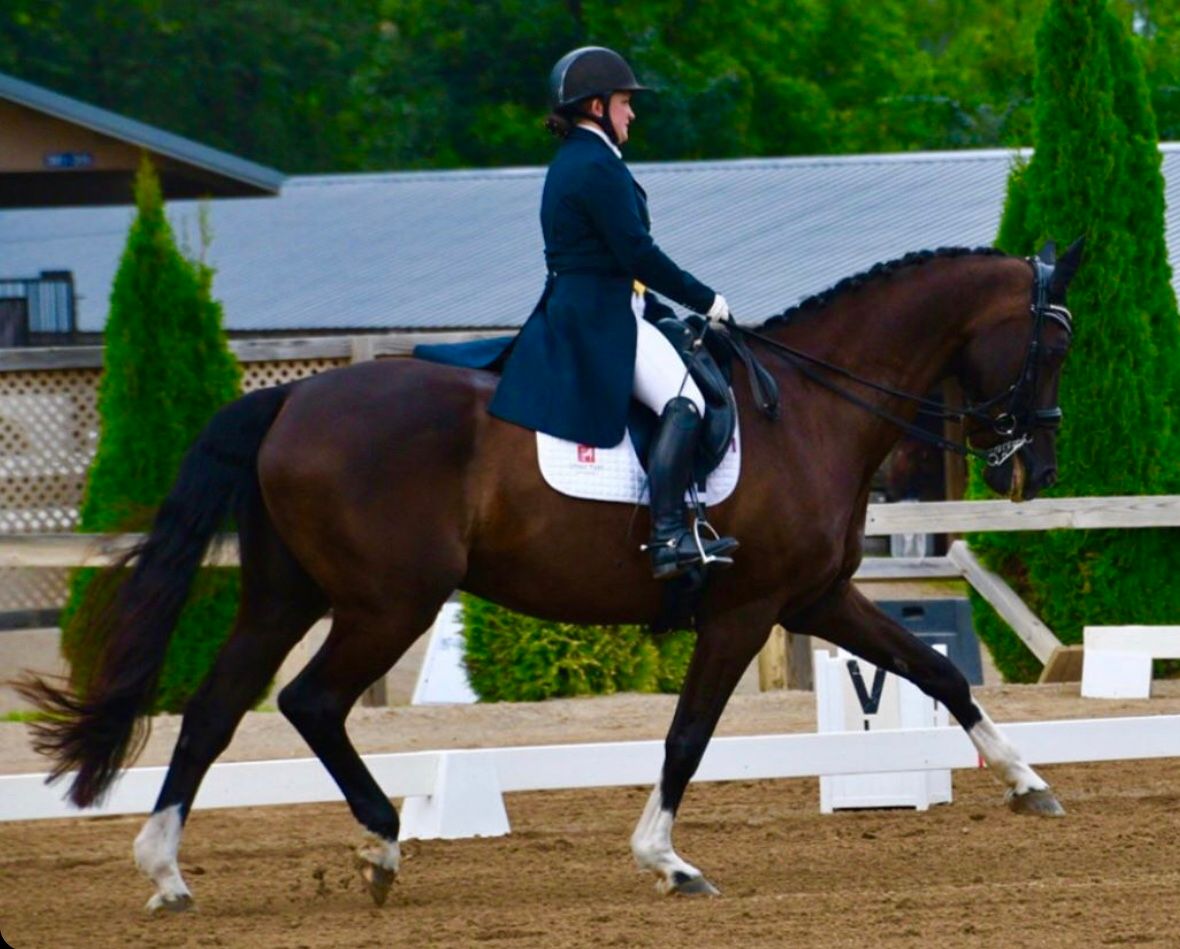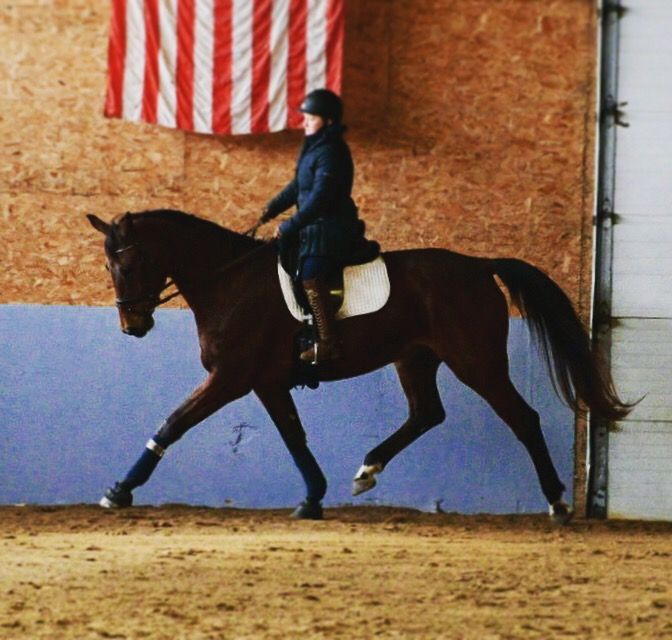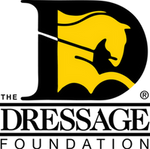
On March 7th and 8th, I had the privilege of attending the second section of the USDF Instructor Certification Program hosted by Michigan Dressage Association at Michigan State University. This program’s purpose, first and foremost, is to promote education for the trainer. This educational opportunity is broken down into three weekend workshops, a pre-testing, and an official testing event. This generous grant from the Barnett Family helped me take Workshop 2: Teaching the Horse and Rider portion. With this section completed, I will now move on the the long-lining weekend this summer.
The following were a few of my key take-a-ways that I will be applying in my everyday training and teaching repertoire:
Evaluate: One thing that I learned to appreciate more during this clinic is the complexed task of "The Evaluation." Sometimes as a trainer, it is easy to talk first and listen/look later. This can leave the trainer, rider, and horse set up for struggle instead of taking the situation for face value each and every day. A more successful idea was presented: Go into the lesson, watch for 2-3 minutes, then shape the lesson around what you see and observe. This is a better recipe for progress and advancement up the training scale. This principle is also easier said than done, but it is a great tool to practice in order to progress the training of the client and your eye as a trainer.
Keep It Simple: It is so easy to get bogged down in the details of training theory and the latest trends. Going back to the basics of the training pyramid in order to address training issues will help to keep it simple while confirming the principles of classical dressage. As a trainer, I hope to do my part to send clients back to the basics, while establishing the reputation for keeping it easy to understand/being kindly direct.
Back to the Basics: One thing that was so amazing to me is how quickly we forget about the foundation of dressage. As stated above, it is important to keep it simple, but arguably more important to establish a base with which to build your training repertoire. Obviously this is something we all think about, but it was pointed to again and again at the workshop. We would find an issue with a specific horse/rider combination, and bring it back to the basics to hopefully address the specific problem or behavior. Without this ability to watch, identify, and address, progression would be difficult if not impossible.
I would like to again thank The Dressage Foundation and the Barnett Family for continuing to provide great learning opportunities for us as young trainers to learn and explore. Without help, programs like this would be very difficult financially to attend. I look forward to sharing my experiences with others on applying and receiving this amazing opportunity, as well as attending a section of the 2020 USDF Instructor Certification Program.

